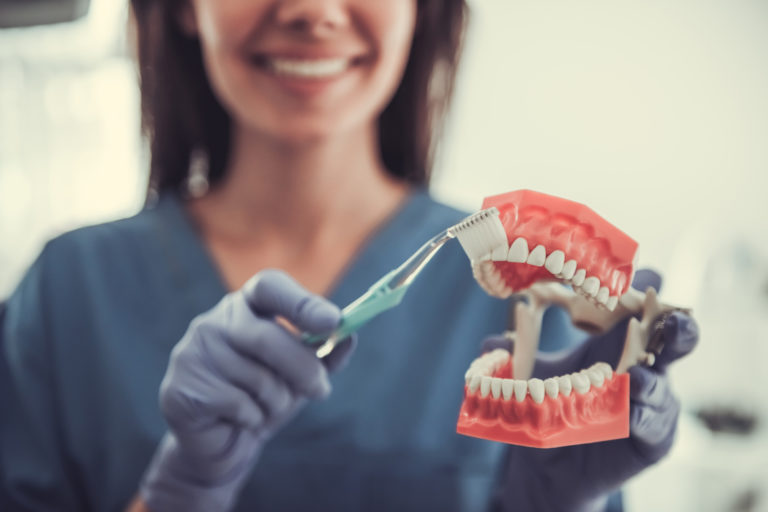By Bailey Crow, DMD
Brushing your teeth twice per day is critical to maintain dental health, and finding the right toothpaste can help you keep tooth decay at bay. With so many toothpaste options on the shelves, you might be wondering which one is best for you. To aid you in your search, see below for seven kinds of toothpaste and what benefits they offer:
- Anti-cavity Toothpaste. Anti-cavity toothpaste contains fluoride, which brings nutrients to damaged teeth (remineralization) and strengthens enamel. Fluoride can stop tooth decay and prevent it from worsening by protecting teeth from acids generated by harmful bacteria in the mouth.
- Tartar Control Toothpaste. There’s no avoiding harmful bacteria in the mouth! However, you can ensure that it won’t build up into plaque and cause decay by using a tartar control toothpaste. Tartar is a substance located along the gums that hardens over time and can lead to gum disease (gingivitis). It’s best to prevent tartar buildup by using a fluoride toothpaste — once you have tartar, it can only be removed by your dentist.
- Whitening Toothpaste. Whitening toothpaste contains gentle abrasive agents that remove surface stains on the teeth. They will not change the color of your teeth, but by removing the surface stains, they will reveal a brighter smile. When using a whitening toothpaste, keep in mind that it may cause tooth sensitivity.
- Sensitive Toothpaste. Tooth sensitivity occurs when the tooth’s enamel is damaged, exposing dentin, the next layer of the tooth. Specific compounds in toothpaste for sensitive teeth can help patients avoid discomfort by desensitizing nerve endings and adding a protective layer to the dentin. If you’re experiencing severe tooth sensitivity, discuss it with your dentist immediately.
- Children’s Toothpaste. Children under age 12 should use children’s toothpaste — it’s specifically formulated for “baby teeth” and isn’t harmful if swallowed because it contains less fluoride than adult toothpaste. This toothpaste also comes in different flavors to make brushing more appealing for kids!
- Natural Toothpaste. Some patients prefer to use toothpaste without artificial chemicals and ingredients. However, many of these toothpastes don’t contain fluoride, the critical cavity-fighting ingredient. If you’re worried about chemicals, consult with your dentist about your options so you can make an informed decision.
Brushing and flossing twice a day is critical in preventing tooth decay, and so is visiting your dentist twice a year. If you’re still not sure what toothpaste is best for you, schedule an appointment with us today — we’ll be happy to help you find the right fit!

